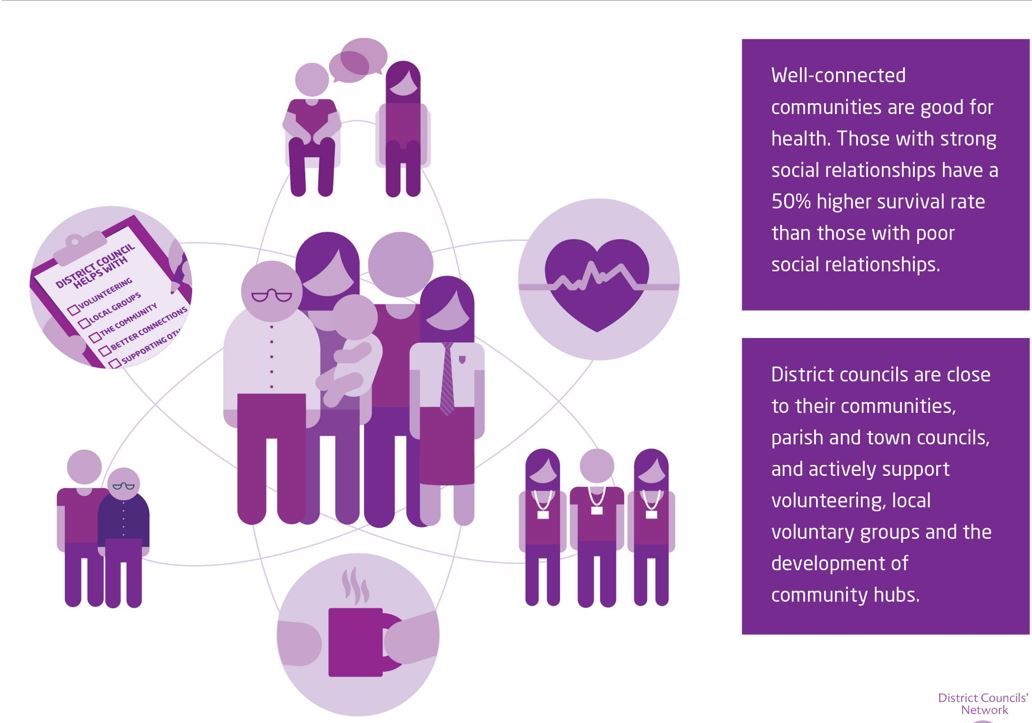District councils should be seen as key partners by the NHS and other tiers of local government, recognising their existing critical work in the integration of public health and care systems in England’s shire areas, a renowned health think-tank has advised.
The call is contained in an editorially-independent report from The King’s Fund entitled: ‘The district council contribution to public health: a time of challenge and opportunity’.
Commissioned by the District Councils’ Network (DCN) earlier this year, the study issued 19 November 2015 by the network investigates how district councils currently support community health and wellbeing and makes recommendations for how this role could be widened to deliver greater local health outcomes – while also providing cost savings and efficiencies.
Major district council contributions to health outcomes identified in the report include:
- The efficient and high quality management and ownership of affordable housing – the report authors classed housing costs as ‘the most important factor in the relationship between housing and poverty’;
- Continued delivery of home adaptations to prevent avoidable domestic accidents, falls and trips which burden the health service;
- Leisure services provided by districts which contribute to estimated annual £1.7bn averted NHS spend from sport;
- Provision of green spaces for residents;
- Delivery of homelessness prevention services and support of vulnerable residents.
But in order to become integrated into mainstream health policy, The King’s Fund authors advised districts to focus on three key factors:
- To continue leading innovation in service delivery;
- To strengthen their enabling role in the health of their communities;
- To prove effectiveness and show return on investment.
Among ten recommendations for maximising district impact on local health improvement, the report urges the DCN to make sure its members are at the core of the integration and devolution agenda. It also calls for greater collaboration between local government, Clinical Commissioning Groups and better alignment between health, social care and preventative services through Health and Wellbeing Boards.
Report co-author, David Buck, who is senior fellow, Public Health and Inequalities at the King’s Fund, said: “For too long district councils have been the sleeping giants of public health.
“Maximising their role in service delivery and the wider determinants of health will be crucial for the millions of people who live in district council areas.”
Further reading:






